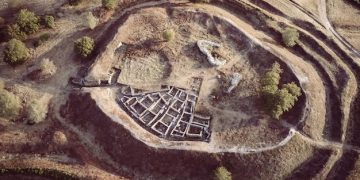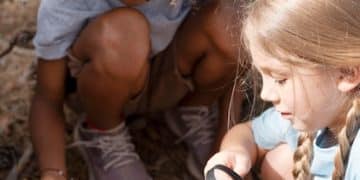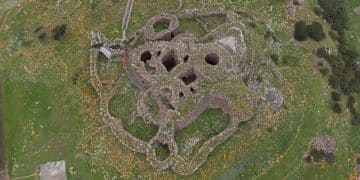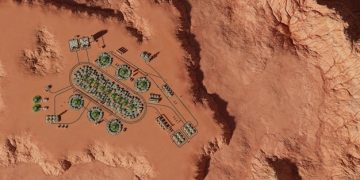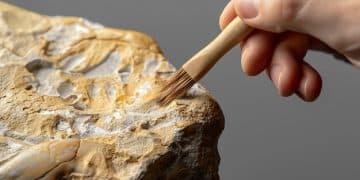Unearthing America’s Past: Archaeological Discoveries in 2025
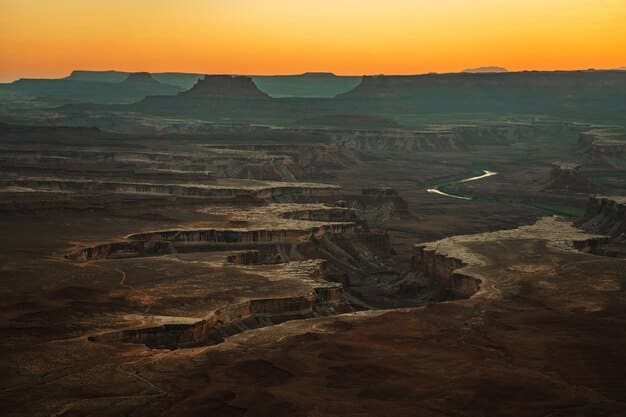
Unearthing America’s Past: How New Archaeological Discoveries in 2025 Could Rewrite US History involves examining potential findings that could reshape our understanding of the nation’s origins, cultures, and significant events, offering fresh insights into the story of America.
Imagine a future where our understanding of American history is dramatically altered by groundbreaking archaeological findings. What if discoveries in 2025 challenged long-held beliefs and revealed hidden chapters of the past? Unearthing America’s Past: How New Archaeological Discoveries in 2025 Could Rewrite US History is a journey into the realm of possibility, where each unearthed artifact holds the potential to reshape our national narrative. How will these discoveries affect The United States?
Exploring the Potential of Archaeological Discoveries in 2025
Archaeology is an ongoing process of discovery; Unearthing America’s Past: How New Archaeological Discoveries in 2025 Could Rewrite US History and its consequences are therefore potentially more profound than we can currently envisage. The treasures hidden beneath our nation’s surface may rewrite textbooks and challenge conventional wisdom. This section explores the potential impact of these future discoveries, and what we can expect them to teach us.
Pre-Columbian Civilizations
Imagine unearthing evidence of sophisticated societies that thrived long before European contact. These civilizations could redefine our understanding of early American history.
- Advanced agricultural techniques
- Complex trade networks
- Sophisticated astronomical knowledge
Early Colonial Life
New insights into the daily lives of early colonists may emerge, offering a more nuanced view of their struggles and triumphs. Archaeological finds could reveal details about their interactions with indigenous populations and the challenges they faced in a new land.
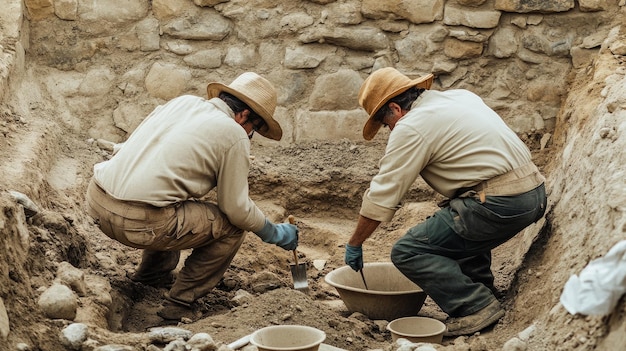
In conclusion, the potential implications of future archaeological discoveries are immense. They promise to enrich our understanding of America’s past, and offer new perspectives on key events and civilizations. By embracing these new narratives, we can foster a more inclusive and accurate portrayal of American history.
Unearthing America’s Past: New Methods in Archaeological Exploration
Archaeological methods are constantly evolving, and Unearthing America’s Past: How New Archaeological Discoveries in 2025 Could Rewrite US History is being assisted by a number of technological advancements. From advanced remote sensing to DNA analysis, tools are revealing hidden sites and unlocking secrets stored in ancient artifacts. Let’s explore these innovative techniques and how they contribute to our expanding knowledge of the past.
- Remote Sensing: Technologies like LiDAR (Light Detection and Ranging) can map subsurface features without disturbing the ground.
- DNA Analysis: Analyzing ancient DNA can reveal migration patterns, kinship relationships, and genetic traits of past populations.
- Geophysical Surveys: Ground-penetrating radar and magnetic surveys can detect buried structures and artifacts.
The Role of Collaboration
Collaboration between archaeologists, historians, and indigenous communities is increasingly vital. By combining diverse perspectives, researchers can gain a more complete understanding of the past.
In conclusion, the integration of new technologies and collaborative efforts is revolutionizing the field of archaeology. These innovations enable researchers to uncover hidden sites, analyze artifacts with greater precision, and engage with diverse perspectives. As a result, the stories we tell about America’s past will continue to evolve and become more comprehensive.
Focus on Key Archaeological Sites Poised for Discovery
Certain regions of the United States hold immense potential for archaeological discoveries. From the Southwest to the East Coast, these sites are likely to reveal valuable insights into America’s past. Areas such as the Southwest are historically significant and are likely locations to contribute to Unearthing America’s Past: How New Archaeological Discoveries in 2025 Could Rewrite US History.
Archaeological sites that are poised for discovery include:
- Southwest: Ancestral Puebloan sites may hold clues about the lives and culture of early Native American civilizations.
- East Coast: Colonial settlements and early contact sites could reveal new details about the interaction between European colonists and indigenous populations.
- Midwest: Earthwork sites built by the Hopewell and Mississippian cultures offer insights into complex societal structures.
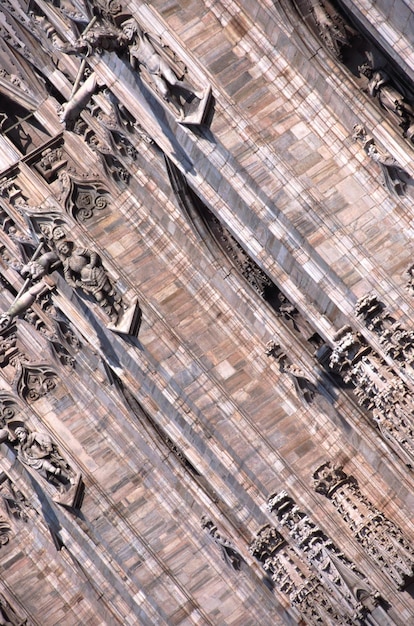
In conclusion, by prioritizing exploration and research at these key archaeological sites, we stand to uncover valuable insights into America’s rich and diverse history. Each discovery contributes to a more complete and nuanced understanding of our nation’s past, and highlights the importance of archaeological preservation and investigation.
The Impact on Public Awareness and Education
Archaeological discoveries have the power to captivate the public imagination and enhance educational programs. Sharing these findings through museums, documentaries, and interactive exhibits can foster a deeper appreciation for history in The United States. After Unearthing America’s Past: How New Archaeological Discoveries in 2025 Could Rewrite US History, public engagement will be key to driving further discovery.
Engaging the Public
Museums and educational institutions play a crucial role in bringing archaeological discoveries to the public. Interactive exhibits, lectures, and educational programs can engage audiences of all ages, making history accessible and relevant.
Documentaries and media coverage can also generate excitement and interest in archaeological finds. By showcasing the process of discovery and the stories behind the artifacts, filmmakers and journalists can inspire a deeper appreciation for the past.
Enhancing Educational Programs
Archaeological findings can be integrated into school curricula, providing students with hands-on learning experiences. Field trips to archaeological sites and interactive simulations can bring history to life, promoting critical thinking and historical literacy. In this way, Unearthing America’s Past: How New Archaeological Discoveries in 2025 Could Rewrite US History could engage the young more completely.
In conclusion, the impact of archaeological discoveries extends far beyond the scientific community; they have the power to transform public awareness and enrich educational programs. By sharing these findings through diverse channels, we can foster a deeper appreciation for history and inspire future generations of archaeologists and historians.
Ethical Considerations in Archaeology
Ethical considerations are paramount in modern archaeology, particularly when working with indigenous communities and sensitive sites. Respect for cultural heritage, collaboration with local stakeholders, and responsible excavation practices are crucial for preserving the integrity of the past following something as momentous as Unearthing America’s Past: How New Archaeological Discoveries in 2025 Could Rewrite US History.
Key ethical principles include:
- Respect for Cultural Heritage: Archaeological sites are often sacred or culturally significant to indigenous communities. Excavations should be conducted with sensitivity and respect for local traditions.
- Collaboration with Local Stakeholders: Engaging with indigenous communities and local stakeholders is essential for ensuring that archaeological projects are culturally appropriate and benefit the community.
- Responsible Excavation Practices: Excavations should be conducted with care to minimize disturbance to the site and preserve artifacts for future analysis.
Protecting Archaeological Sites
Protecting archaeological sites from looting, vandalism, and development is a shared responsibility. Governments, organizations, and individuals can work together to preserve these valuable resources for future generations. After we are finished, more will likely be found if done ethically by the right people.
In conclusion, ethical considerations are at the heart of modern archaeology. By prioritizing respect for cultural heritage and responsible excavation practices, we can ensure that archaeological discoveries benefit both the scientific community and the broader public.
Preserving the Past for Future Generations
The importance of preserving archaeological sites and artifacts cannot be overstated. These tangible remnants of the past provide invaluable insights into human history and cultural heritage. The work of Unearthing America’s Past: How New Archaeological Discoveries in 2025 Could Rewrite US History will be meaningless if it is not preserved properly.
Strategies for preserving the past include:
- Conservation and Restoration: Artifacts should be carefully conserved and restored to prevent deterioration.
- Site Management: Archaeological sites should be managed to prevent damage from erosion, looting, and development.
- Education and Outreach: Educating the public about the importance of archaeological preservation can foster a sense of stewardship and encourage responsible behavior.
The Role of Technology
Technology can play a crucial role in preserving archaeological sites. Digital mapping, 3D modeling, and virtual reality can create detailed records of sites before they are excavated or damaged. The future work of Unearthing America’s Past: How New Archaeological Discoveries in 2025 Could Rewrite US History will rely on this and benefit from it.
In conclusion, preserving the past for future generations requires a concerted effort to conserve artifacts, manage archaeological sites, and educate the public about the importance of cultural heritage. By embracing these strategies including ethical preservation methods, we can ensure that future generations have the opportunity to learn from and appreciate the rich tapestry of human history.
| Key Point | Brief Description |
|---|---|
| 🔑 Potential Discoveries | Unearthing evidence of pre-Columbian civilizations and early colonial life. |
| 🔬 New Methods | Using remote sensing, DNA analysis, and geophysical surveys. |
| 🌍 Key Sites | Focusing on the Southwest, East Coast, and Midwest regions. |
| 📜 Ethical Considerations | Respecting cultural heritage and collaborating with local communities. |
Frequently Asked Questions
Discoveries could include evidence of pre-Columbian civilizations, new insights into early colonial life, and details about interactions between European colonists and indigenous populations.
Archaeologists are using remote sensing technologies like LiDAR, DNA analysis, and geophysical surveys, such as ground-penetrating radar, to discover hidden sites and unlock the secrets of artifacts.
Collaboration between archaeologists, historians, and indigenous communities provides diverse perspectives that are essential for a more complete understanding of the past, which results in greater accuracy.
Archaeological finds can captivate the public and also enhance educational programs through museums, documentaries, and interactive exhibits, fostering a deeper appreciation for the understanding of history.
Ethical considerations include respecting cultural heritage, collaborating with local stakeholders, and practicing responsible excavation to preserve the integrity of cultural sites and artifacts, all while adhering to the law.
Conclusion
In summary, Unearthing America’s Past: How New Archaeological Discoveries in 2025 Could Rewrite US History holds the promise of transforming our understanding of the nation’s origins and cultural heritage. With advanced methods and a commitment to ethical practices, researchers are poised to uncover the secrets of the past.

